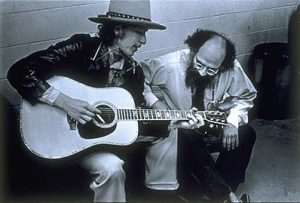If you dream of matching up to the genius of B.B. King and Eric Clapton you have to understand their music first. The golden rule is; play less, listen more. Ear training, as the name suggests, is all about training your ears to the different tunes of the guitar. Read through the guide to know more.

The Theory of Music
Music is perhaps the only sphere where we witness the merger of the practical and the theory in real time. Learning the theory of different chords and technicalities of music is as important as actually playing them. So in order to master the guitar, it is necessary that you get comfortable with the theoretical aspect of it first.
Know all about the pitch, the base, the different chords and strings of the instrument before you begin playing one. Guitar playing requires immense concentration, willpower, and hard work. You just cannot play a guitar if you have no idea about its many intricacies.

Learn to Listen
Humans learn most things by imitating, probably something we inherited from our ancestors. There are so many musicians out there who have no clue about the technical nuances of music but were still considered to be great. They imbibed all their musical knowledge simply by listening. Of course they were naturally gifted, but they also paid attention to one tiny detail that most musicians forget, listening. Listening is an art, albeit an underrated one.
What is ear training all about?
It is only when you learn to identify the chords and tunes of the guitar simply by listening is when you actually become an expert. This is where ear training comes into the picture. You may argue that you listen to good music all the time, but are you actually listening?

Like really listening? For instance, can you identify the chords used, or the scale and tune of any random song just by listening to it? Well ear listening teaches you that! It refines and sharpens your auditory nerves, making it more attuned to the different tones of the guitar. It comes with experience, the more you listen the more you grow.
How to Go About It?
Now that you know all about the “what” and the “why” of ear training, you must be curious about the “how” aspect of it, i.e. the practical implementation. First and foremost get your theory correct. You have to have a fair idea about the different chords before you start identifying them. It might seem a bit strange at first, like learning a new language, you just have to get used to it.
After some practice, you’ll be fine though and it will come to you naturally. There are so many applications and learning programs that you can use to learn all about ear training. Applications such as EarMaster Pro, GNU Solfege, and Auralia are considered to be the best. But it is not a one-time thing. It comes with a lot of practice and patience.
The Perks of Ear Training
Ear training has many benefits. It makes you a much better guitarist and also sharpens your technical knowledge about the instrument. Playing a guitar is not just jamming a few strings, it has a whole set of rules! Still looking for reasons as to why ear training is good for your music career? Perhaps these reasons mentioned below would help:

- With ear training you can immediately identify the chords used in any song or musical piece.
- Creating your own music is also so much easier for you can now calculate the different permutations and combinations of the strings mentally producing a harmony of sounds.
- There is no need for a guitar tuner; you can now tune your guitar manually by ear.
- Improvisation on any particular piece is so much easier as you now know all about the major and minor chords and other details of the melody.
- You can also recognize your mistakes and rectify them or immediately know if your guitar ever goes out of tune
The Bottom Line
It is easy to mug up the different chords but actually understanding and implementing it is what makes you a good musician. Ear training helps you identify the different chords of the guitar. Remember, listening is as vital as learning!
Featured Image: Image Credit
can you believe he taught himself to play piano by ear bc he can’t read music notes i love talent pic.twitter.com/BLyhPGRAHa
— ️ (@pcysarchive) May 25, 2016
Your left ear is better at hearing music, the right is better for conversations
— Knowledge (@itzwikipedia) May 26, 2016
Related Articles
John Petrucci: Why It’s So Important To Train Your Ear As A Guitarist
Dream Theater guitar champion John Petrucci sat down with Music Aficionado to share his Top 5 tips for all the guitar players out there, focusing on the importance of training your ear among other things.
Explaining how ear training is absolutely crucial, the man noted that guitarists should approach the whole thing by “learning different guitar solos.”
He said: “There are so many sources that are available to us now – you can go on YouTube and see how solos are played. Via Ultimate Guitar
Steve Vai’s Course In Ear Training, Part 1
I could never overstate the importance of a musician’s need to develop his or her ear. Actually, I believe that developing a good “inner ear”—the art of being able to decipher musical components solely through listening—is the most important element in becoming a good musician. Possessing a healthy imagination is a necessary ingredient for creativity.
But without the ability to bring those imagined sounds into the real world, one’s creative aspirations will remain crippled. Training one’s ears to understand and recognize musical sounds and concepts is one of the most vital ways to fortify the connection between the musical ideas in one’s mind and the musical sounds created on one’s instrument. Via Guitar World
The Best Ear Training Apps for Producers, Engineers & Recording Musicians
For most engineers, the ultimate goal is to be able to “feel” their way through a mix, and to do their work in a completely natural and intuitive way.
Much like professional musicians, who often transcribe great solos with the hope that in time, that conscious effort will lead to improvements that creep out unconsciously in their playing, engineers can use intentional critical listening drills to dramatically improve their instincts and skills. Via Sonic Scoop




